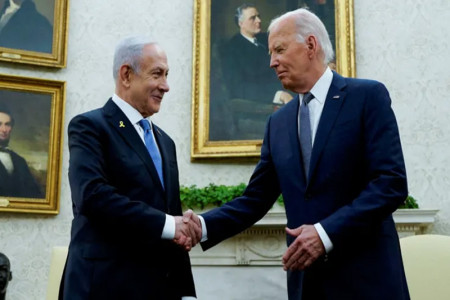In a statement announcing that the operation was under way on Saturday, Israel's military spokesman said Israel had the "right and duty" to respond and that its defensive and offensive capabilities were fully mobilised.
Iranian state media has confirmed that explosions have been heard in the west of Tehran.
But there's no clarity as yet in precisely what the targets have been and whether they have been successfully hit by Israel.
News sites close to Iran's Revolutionary Guards says that some military bases in the west and south-west of the Iranian capital have been targeted.
The Syrian state news agency says that Israeli air strikes have also targeted some military sites in central and southern areas of Syria.
The office of the Israeli Prime Minister Benjamin Netanyahu has released a picture of him in the operations centre of the military headquarters during the attack.
For now, at least, Iranian media is playing down the impact. The true nature of what has happened is only likely to trickle out bit by bit from the Iranian authorities.
Israel may move more quickly to disclose the details of its attack. But that may depend on whether or not it plans to carry out another wave.
The Pentagon has given a briefing that the US was made aware of Israel's plans beforehand and that there was no US involvement in the operation.
That's significant in Washington's efforts to try to prevent the conflict between Israel and Iran escalating into a confrontation that could move ever closer to all-out war.
The US will also be waiting for the dust to settle to see if Israel's targets were limited to military targets or went beyond that to include facilities linked to Iran's nuclear programme - which could trigger another major response from Tehran.
For now - on the scant evidence that is available - Israel may have heeded Washington's warnings and reined in some of its more ambitious plans to cause maximum pain to the Iranian authorities.
BBC


